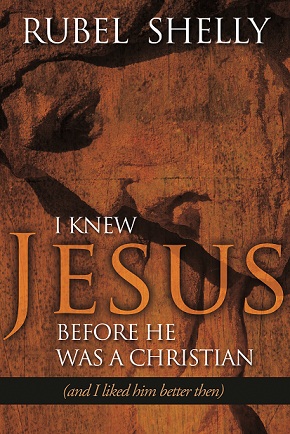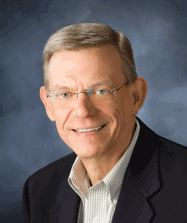Rubel Shelly is the President of Rochester College (Rochester, MI), a school affiliated with a student body of approximately 900. Previously, he served as the Senior Minister of Woodmont Hills (Nashville, TN) from 1978 to 2005. Shelly is the author or co-author of over 30 books including The Jesus Proposal: A Theological Framework for Maintaining the Unity of the Body of Christ (2006 with John O. York), What Would Jesus Do Today (2008 with Mike Cope), and I Knew Jesus Before He Was a Christian . . . and I Liked Him Better Then (2011).
Book Basics
Based on its content, I Knew Jesus Before He Was a Christian . . . and I Liked Him Better Then could have a number of alternative titles including: I Knew Christianity Before Constantine . . . and It’s Time to Restore that Form of the Faith or I Knew Christianity When it was a Movement . . . and That is a Much Better Model. In keeping with the Restoration Movement, of which the churches of Christ are a part, Shelly argues for a return to the ways of the early church thereby enabling followers of Jesus today to be both pro-Jesus and pro-church. Instead of the current tendency for groups to divide again and again over differing views of theological matters, Shelly believes the return to the earliest views of Jesus and experiences of church will bring about unity.
 With numerous Scripture references, Shelly seeks to reorient his readers to how people experienced and lived out their faith in the first few centuries after Jesus’ earthly ministry. Restoring this type of faith requires undoing 1700 years of development in the institutional church. However, it also provides a path to a more authentic Christian faith. Some of the proposed outcomes from such a shift include:
With numerous Scripture references, Shelly seeks to reorient his readers to how people experienced and lived out their faith in the first few centuries after Jesus’ earthly ministry. Restoring this type of faith requires undoing 1700 years of development in the institutional church. However, it also provides a path to a more authentic Christian faith. Some of the proposed outcomes from such a shift include:
- Churches moving from institutional to relational (p.45-46);
- Worship moving from being a “left-brain exercise in analytic theology” in modernity or a right-brain experience in postmodernity to an integrated “whole-person worship” as was present in the early church (p.122); and
- Ministry returning to all of God’s people with a more robust understanding of the priesthood of all believers (the reformation reintroduced the concept but still retained a hierarchy requiring clergy to do certain religious “tasks” rather than opening the doors wide enough for all to enter fully into ministry, p.157-175).
So What?
This book is not a quest for the historical Jesus nor an attempt to trace the development of people’s understanding of Jesus beginning with the biblical authors and extending forward into the first several centuries of the common era. It is an exploration of parts of the story of how the movement became a religion and how that religion changed over the centuries, especially as a result of Constantine and the Reformation.
- Do you believe the church of the 21st century should be patterned after the church of the first and second centuries? Why or why not? What are the relative strengths of this approach?
- How familiar are you with the history of the Christian faith? with the history of your own denomination or religious network/group? How has your own historical understanding helped you better understand what it means to follow Jesus today?
Rubel Shelly. I Knew Jesus Before He Was a Christian . . . and I Liked Him Better Then (Leafwood: 2011). ISBN: 9780891122715.
